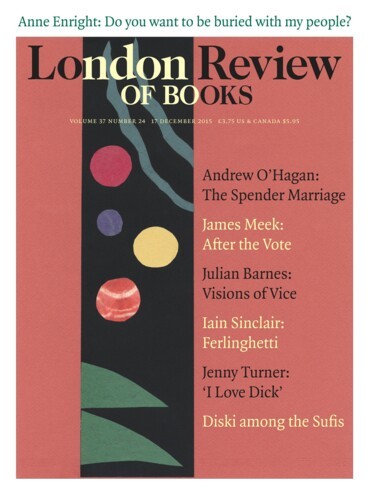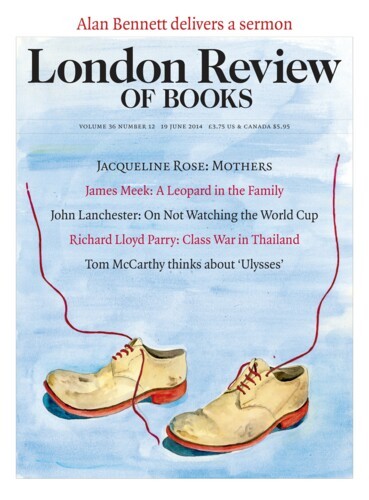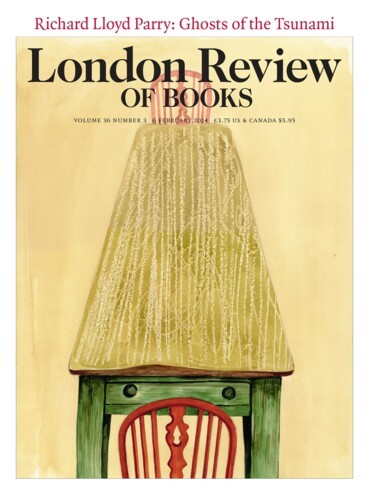Blame it on Darwin
Jonathan Rée, 5 October 2017
When the 22-year-old Charles Darwin joined HMS Beagle in 1831 he took a copy of Paradise Lost with him, and over the next five years he read it many times, in Brazil, Patagonia, Tahiti, New Zealand, Australia and Mauritius. As the ship’s naturalist he sent commentaries and specimens back to colleagues in London, who soon came to see him not as a dilettante but an extremely acute...





